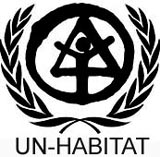REMOVING UNFREEDOMS |
 |
|
Development
as Freedom In his publication Development as Freedom (1999), Sen persuasively argues, is at once the ultimate goal of social and economic arrangements and the most efficient means of realising general welfare. Social institutions like markets, political parties, legislatures, the judiciary, and the media contribute to development by enhancing individual freedom and are in turn sustained by social values. Values, institutions, development, and freedom are all closely interrelated, and Sen links them together in an elegant analytical framework. By asking 'What is the relation between our collective economic wealth and our individual ability to live as we should like?' and by incorporating individual freedom as a social commitment into his analysis, Sen allows economics once again, as it did in the time of Adam Smith, to address the social basis of individual well-being and freedom. |

Sen Amartya (1999), Development as Freedom, OUP, Oxford |



